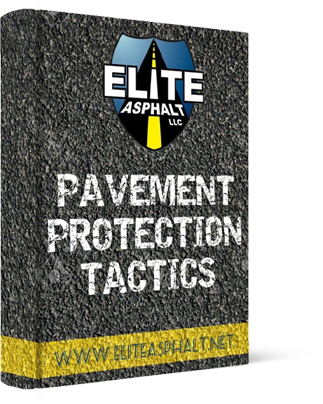Tar and Chip Versus Asphalt. So, you’ve just purchased a brand new home in Dallas, Texas, and are ready to focus on driveway installation — or maybe you’re looking to give your old home a new look with a fresh surface. In any case, when it comes to paving the driveway, homeowners have several options to choose from. Today we’ll be focusing on two primary choices, each with their own advantages and drawbacks: tar and chip vs asphalt driveways.
Tar and Chip Driveways
Though less of a household name than asphalt, tar and chip paving is nothing new — in fact, the material has been used in numerous applications on a global scale for over 100 years.
Benefits of Tar and Chip Driveways
- Aesthetic Appeal: Tar and chip driveways are dynamic, beautiful, and can be installed to fit your specific design preferences.
- Self-Healing: Tar and chip driveways are unique in that they are self-healing in hot weather. Given the right climate, the cement that binds the pavement together will flow into any cracks that might have formed over time.
- Maintenance: Unlike asphalt, tar and chip driveways don’t require sealing throughout their lifespan.
- Improved Traction: Thanks to its composition, tar and chip driveways provide higher traction for vehicles.
Drawbacks of Tar and Chip Driveways:
- Lifespan: Tar and chip driveways tend to last up to 10 years — a considerable lifespan, but they don’t last quite as long as their asphalt counterparts.
- Good Contractors Are Harder to Find: Contractors skilled in tar and chip installations aren’t nearly as plentiful as those offering asphalt paving.
Asphalt Driveways
There are several reasons why asphalt is such a popular material for driveways, but this option does come with its share of considerations.
Benefits of Asphalt Driveways:
- Sharp Look: Though they don’t come with the natural appeal of the stones used in tar and chip, asphalt driveways are known to provide a sharp, uniform aesthetic.
- Strength: After it’s been allowed to properly set, an asphalt driveway is capable of supporting virtually any load regardless of heft.
- Malleability: Asphalt driveways have some degree of flexibility, which makes them resistant to cracks forming due to variations in weather.
- Lifespan: Asphalt driveways can typically last for up to 20 years. However, when excellently installed and maintained throughout the years, their lifespan can potentially extend to 30 years.
Drawbacks of Asphalt Driveways:
- Heat: If temperatures are high enough, asphalt driveways will absorb considerable amounts of heat and transfer it to any vehicles parked on them.
- Maintenance: These driveways don’t maintain themselves — asphalt needs to be re-sealed every 2-5 years in order to keep its sleek look and durability.
Both options are more affordable than concrete and other surface materials. However, tar and chip tends to be more cost-efficient than asphalt. Of course, that comes at the price of longevity. Ultimately, it’s important to look at all the unique factors these two materials have to offers and make an informed decision based on your personal priorities.









